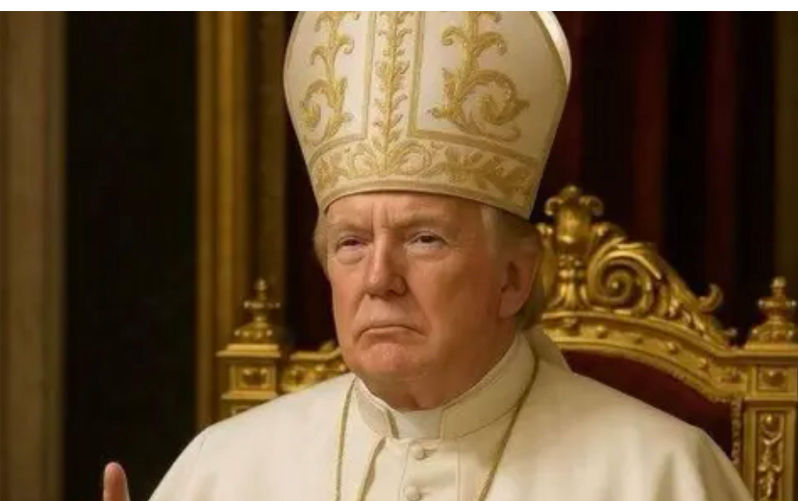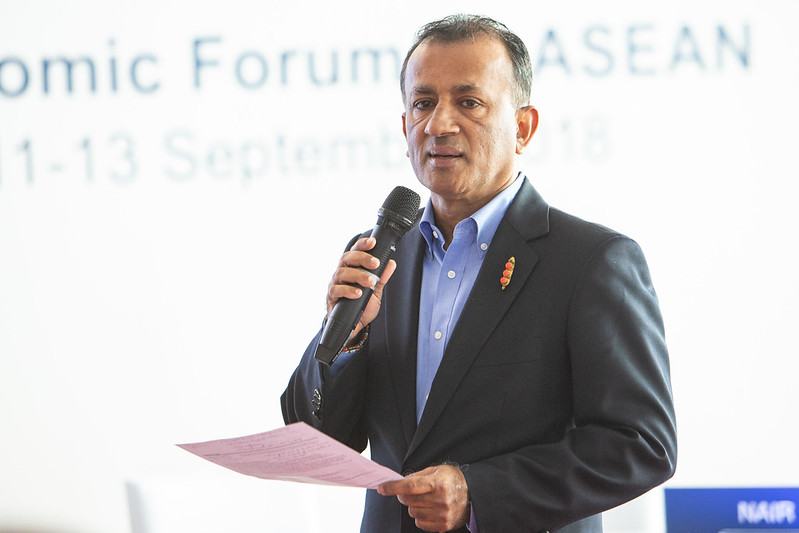The unravelling of American exceptionalism: The inevitable decay of hegemony built on crassness - Part 1
June 23, 2025
In early May 2025, as Roman Catholic Cardinals gathered to pick the next Pope, US President Donald Trump posted an AI-generated image of him as the Pope shortly after saying, “I would like to be Pope.”
Reactions from around the world were swift, but not everyone was shocked. After all, this was American crassness at its best and the world had got used to it. Trump is not the first nor the only one who has inured the world to American crassness. There is a long list.
When Trump announced sweeping new tariffs on global trading partners in April with China bearing the brunt, financial markets convulsed in their worst turmoil since the early days of the pandemic. Ignorance, arrogance, exceptionalism, and fear of the other all coming together: American crassness on steroids. Trillions of dollars evaporated from stock valuations, and when it got too hot, the US president took notice and paused tariffs for most countries. He then was forced to negotiate a deal with China in mid-May. But most of the American public missed the bigger picture: these tariffs haven’t been implemented to spark a trade war, and nor were they prompted because the world is ripping off America. They are a desperate gambit to prop up the American brand, maintained through decades of economic hegemony, reliant on the exorbitant privilege of the dollar, but which is faced with a perilous moment: it is past the peak of its influence.
Desperate to show the world he is winning in a zero-sum-game, Trump went on to say that leaders of other nations were queuing up to get a deal done and even “kiss my ass". Crass may be too polite a word for such a statement, but the world was not shocked. Such crude boastfulness is central to the American way and ego in almost all walks of life from entertainment, politics, media, finance and even sports. To most of the world it reflects the immature culture of an isolated and brash young settler nation that, as it got wealthy via colonisation of the bounty of the land of the original Native Americans, normalised its unfettered arrogance. The rest of the world playfully termed this the “Ugly American". But this playful tolerance simply emboldened the American psyche and produced today’s rogue state run by supremacists supported by a large majority.
The US trade deficit, often cited as the reason for the tariff protectionist measure, is merely a symptom of a deeper malaise. The real issue? American products, and the culture that sells them, are losing their appeal as the world — and especially nations such as China, South Korea and before them Japan — produce superior quality goods. The other contributing factor is that America began to believe in its own hubris about how globalisation works and shifted its economy to services, dominated by the financial sector — leveraging the exorbitant privilege of the dollar — thereby hollowing out manufacturing jobs. Yet Americans continued to borrow and consume like nobody else, encouraged by the state, living beyond their means and creating the debt which is now crippling the nation. At the same time, they have been led to believe that they are the most important engine of growth in the global economy and the American consumer the most important, even if the most indebted. American business media like Bloomberg, CNBC amd NBC, which for historical reasons continue to dominate the world, have for decades promoted such shallow propaganda and everyone drank the Kool-Aid. What was once irresistible now feels unsustainable, increasingly replaceable, and crass to the rest of the world. The world has now finally woken up to the realities of the current unsustainable workings of the global economy and the so-called US-led rules-based world order. So why did it take the world so long to realise that the “American dream” is a paper tiger and its export a poison chalice?
The myth of American superiority
The United States has long viewed itself as the world’s guiding light, a perception shaped by a blend of Puritan self-righteousness and 19th-century expansionist zeal, exemplified by the doctrine of Manifest Destiny. Rooted in Judeo-Christian ideologies and notions of white supremacy, early settlers and founders perceived their arrival in America as a divine mission, fostering a misguided sense of superiority. This was no different from the white Calvinist settlers who created the apartheid system in South Africa. This belief posited that Americans were divinely ordained to dominate the continent, asserting an unearned sense of entitlement rather than a genuine commitment to enlightenment. They justified their expansionist ambitions with religious rhetoric, insisting it was their moral duty to civilise other nations. Today, this same arrogance lingers, even as evidence of American decline mounts, reflecting a desperate attempt to maintain a facade of dominance in an increasingly multipolar world.
The propaganda that accompanied America’s global expansionist plans (which are predominantly driven by the narrow economic interests of its business leaders) is unmatched. It convinced a naïve and unsuspecting world, looking to the West for ideas after centuries of colonisation, of the virtues of crass consumption and exports such as junk food and B-movies, all as part and parcel of selling its allure and soft power. That is now coming to an end.
Consider even education as a much vaunted pillar of soft power: Americans display a peculiar cultural overconfidence that consistently overestimates their knowledge and capabilities – a trend supported by both objective data and self-perception surveys. While 16 industrialised nations currently outperform the US in science education and 23 surpass American math scores, remarkably, most Americans believe their country ranks among the world's top three in these areas. This collective self-deception, heavily reliant on its media and army of commentators, which has a global foothold, extends beyond academic performance, manifesting in production competitiveness, technological innovation, and workforce readiness (evident in Trump’s pompous claims about American manufacturing). The media, Hollywood, and Silicon Valley reinforce this delusion, packaging all aspects of American life as the global aspirational standard while ignoring its rot: obesity epidemics, opioid crises, gun violence, systemic racism and a political system that can’t tell if it’s supposed to work or put on a show. This is perhaps why it is called the “American Dream” because you have to be asleep at the wheel to believe in it. The world is no longer asleep.
It is important, however, to make a simple qualification. While other nations have their social, political, and economic issues and even their own version of crassness, none can match the shameless American promotion of itself as a provider of global good, the repository of unique soft power, and the extensive nature of the damage it has done globally. Of course, it also needs to be made clear that this does not mean the US has not made contributions to the world — like many other nations over time — but this article seeks to draw attention to its unrivalled and unabashed export of crassness to the world.
The views expressed in this article may or may not reflect those of Pearls and Irritations.


